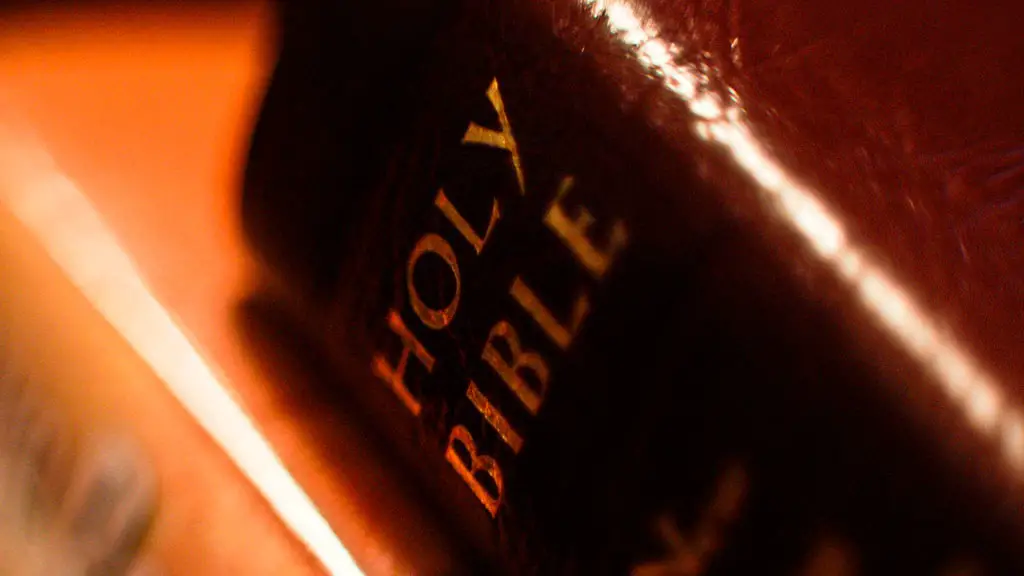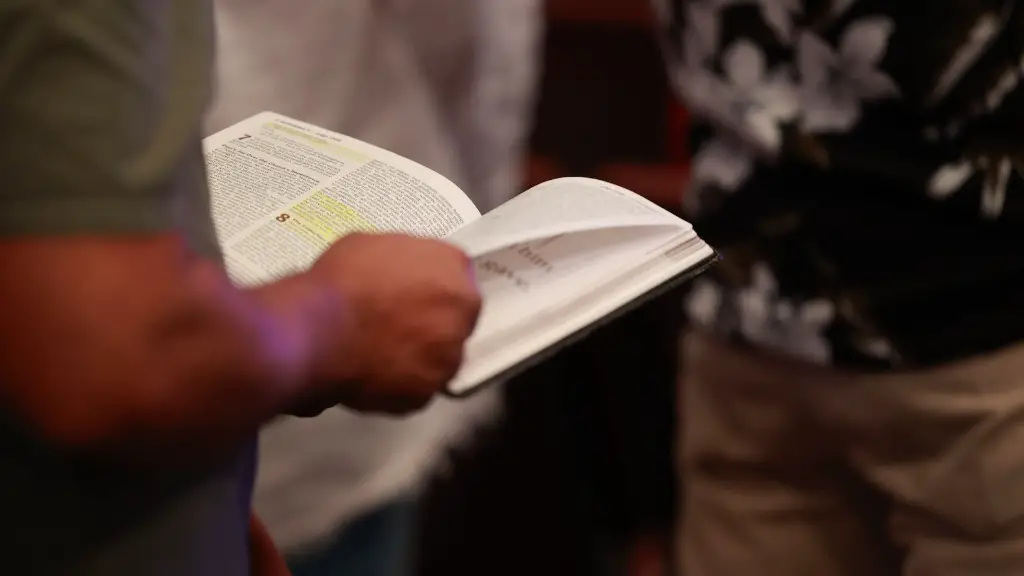The Bible is a book that has been around for centuries. It is a book that has been passed down from generation to generation. It is a book that has been read by millions of people. It is a book that has been studied by scholars. It is a book that has been used by leaders. It is a book that has been used by nations. It is a book that has been used by people of all races, all cultures, all backgrounds, and all walks of life. There is no one book that has been read by more people or has had more impact on the world than the Bible.
The Bible can be trusted as a reliable source of historical and spiritual truth. While it is not a scientific or historical document, it is a reliable record of God’s interaction with humanity and his offer of salvation through Jesus Christ.
How trustworthy is the Bible?
The Bible is a reliable source of information about God and His will for our lives. The Old Testament is particularly trustworthy, as it was written by eyewitnesses to the events it records. Additionally, the translations of the Bible we have today are accurate reflections of the original text. As a result, we can confidently read our Bibles and know that we are receiving the message that God intended for us.
The Bible makes a number of claims about itself, including that it is historically reliable and that it contains predictive prophecies. These claims have been disputed by some scholars, but there is a great deal of evidence to support them. Christ himself affirmed the Bible’s authority and accuracy, and it is clear that the Bible is an extraordinary book that can be trusted.
How accurate and true is the Bible
The Bible is a historically accurate book, even in the smallest of details. Archaeological discoveries in the past century have supported every book of the Bible.
The New Testament is a collection of 27 books, originally written in Greek, that make up the second part of the Christian Bible. Although the books were written over a span of several centuries, they were assembled into a single volume in the 4th century. The New Testament is a reliable and accurate record of the life and teachings of Jesus Christ.
Who destroyed the original Bible?
The Roman Emperor Diocletian was a fierce opponent of Christianity and sought to eradicate the religion from the empire. In AD 301-304, he ordered the destruction of thousands of copies of the Bible and decreed that any home with a Bible in it should be burned. He even built a monument over what he thought was the last surviving Bible. However, Christianity survived and even flourished in the centuries after Diocletian’s reign.
The Bible is a sacred text that has its origins in both the divine and the human. Its narratives, poems, histories, letters, prophecies, and other writings come from a deep collaboration between humanity and God. This makes the Bible a unique and powerful book that has the ability to change lives.
What is the belief that the Bible is without error?
Biblical inerrancy is a hotly contested topic among Christians. Some believe that the Bible is without error in all of its teachings, while others believe that there may be some errors in the Bible but that overall it is a reliable source of information. Still others believe that the Bible is not a reliable source of information at all. Whatever your beliefs about biblical inerrancy, it is important to be respectful of other people’s beliefs and to have open, honest conversation about the topic.
It’s hard to trust God when we don’t understand His plan. We see so little of human history and it’s difficult to know how suffering fits in with God’s good plan. We are taught to believe that God’s plan is good and right, but it’s hard to see that when things are difficult.
Is the Bible historically proven
There is a debate among scholars as to how much of the early stories contained in the Bible are historical fact and how much is legend. Some argue that the stories have a historical basis that was reconstructed centuries later, while others argue that the stories only have a few tiny fragments of genuine historical memory. There is no definitive answer to this question, and it is unlikely that we will ever know for sure what is true and what is not.
While the Bible may be a true story, it doesn’t necessarily mean that everything in it is factual. Biblical stories often contain spiritual truths that go beyond the factual details of the story.
Who created the Bible?
The author of the Torah is believed to be Moses, the Hebrew prophet who led the Israelites out of captivity in Egypt and guided them across the Red Sea toward the Promised Land.
We ask, “If all things have a creator, then who created God?” Actually, only created things have a creator, so it’s improper to lump God with his creation. God has revealed himself to us in the Bible as having always existed. Atheists counter that there is no reason to assume the universe was created.
How do I know the Bible is the true word of God
The Bible is clear that God is the ultimate authority and that His Word is trustworthy. This clarity is based on two sources: first, the words of Scripture claim to be from God, and second, the Holy Spirit’s power applies the truth of Scripture. As a result, we can be confident in the Bible and what it teaches.
The New American Standard Bible (NASB) is a great choice for those looking for a literal translation of the Bible. Its accurate rendering of the original texts makes it perfect for study, and the modern English used for words that have fallen out of use or changed their meanings makes it much easier to read than the King James Version.
What language did Jesus speak?
Most religious scholars and historians agree with Pope Francis that the historical Jesus principally spoke a Galilean dialect of Aramaic. Through trade, invasions and conquest, the Aramaic language had spread far afield by the 7th century BC, and would become the lingua franca in much of the Middle East.
Luther’s arguments against the authority of certain New Testament books are based on a number of factors, including literary style, content, and historical context. In particular, he takes issue with the book of Hebrews because of its different style than the other Pauline epistles, and because its doctrines conflict with those of James and Jude. He also questions the book of Revelation because of its apocalyptic nature and because it was written much later than the other New Testament books.
Conclusion
Yes, the Bible can be trusted.
The Bible is a reliable source of truth because it is inspired by God. However, we must be careful to interpret it correctly.





